Biochemistry analyzers are indispensable tools in modern healthcare, enabling clinicians to measure key biochemical markers in blood, serum, or plasma to diagnose diseases, monitor treatment responses, and assess overall patient health. From primary care clinics to emergency rooms and remote medical facilities, these devices play a critical role in delivering timely, data-driven care. However, traditional benchtop biochemistry analyzers often require large sample volumes, specialized staff, and lengthy turnaround times—limiting their utility in on-site or resource-constrained settings.
The Seamaty SD1 Dry Chemistry Analyzer addresses these gaps by redefining biochemistry analyzer uses for on-site testing. Designed for speed, simplicity, and accuracy, the SD1 delivers lab-quality results with minimal sample input, making it a game-changer for diverse clinical scenarios. Below, we explore the core uses of biochemistry analyzers and how the Seamaty SD1 elevates performance in each application.
1. Routine Health Screenings: Early Detection of Chronic Conditions
One of the most common biochemistry analyzer uses is routine health screenings, where clinicians assess markers like blood glucose, cholesterol, and liver enzymes to identify early signs of chronic diseases (e.g., diabetes, cardiovascular disease, or hepatic dysfunction). These screenings are vital for preventive care, as early intervention significantly improves patient outcomes.
The Seamaty SD1 optimizes routine screenings with:
- Minimal Sample Requirement: Only 90–120μL of whole blood, serum, or plasma is needed per test—1/10 the volume of traditional analyzers. This reduces patient discomfort (especially for pediatric or geriatric patients) and eliminates the need for large-volume blood draws.
- No Sample Pre-Processing: Unlike traditional analyzers that require centrifugation or reagent preparation, the SD1 accepts unprocessed samples. Staff can skip time-consuming steps (e.g., separating serum from blood cells) and start testing immediately.
- 12-Minute Turnaround: Results are ready and automatically printed in just 12 minutes, allowing clinics to complete screenings during a single patient visit. This eliminates follow-up calls or appointments, improving patient satisfaction and compliance.
For example, a primary care clinic using the SD1 can screen a patient for diabetes (via glucose testing) and dyslipidemia (via cholesterol markers) in under 15 minutes—enabling the provider to discuss results and develop a care plan on the spot.
2. Emergency Care: Rapid Diagnosis for Time-Sensitive Conditions
In emergency departments (EDs), biochemistry analyzer uses shift to urgent, life-saving scenarios. Clinicians rely on quick measurements of electrolytes (e.g., sodium, potassium), lactate, and renal function markers (e.g., creatinine) to manage conditions like dehydration, sepsis, or acute kidney injury. Delays in results can lead to delayed treatment, increasing patient risk.
The Seamaty SD1 is engineered for emergency settings with:
- On-Site Testing Capability: Weighing just 4.6 kg and measuring 200mm×252mm×299mm, the SD1 is compact enough to be placed directly in ED treatment rooms or ambulances. This eliminates the need to transport samples to a central lab, cutting turnaround time from hours to minutes.
- Comprehensive Parameter Coverage: The SD1’s reagent discs support multi-parameter testing (e.g., electrolytes, glucose, lactate, liver enzymes) in a single run. For a patient with suspected sepsis, clinicians can measure lactate (a key marker of tissue hypoxia) and electrolytes simultaneously—providing critical data to guide fluid resuscitation or antibiotic therapy.
- Intelligent Quality Control: Built-in real-time QC ensures results are accurate even in high-pressure ED environments. If a sample is compromised (e.g., clotted or diluted), the SD1 alerts staff immediately, preventing misdiagnosis.
Biochemistry analyzer uses extend beyond traditional hospitals to remote clinics, rural health centers, and disaster relief sites—where access to lab infrastructure is often limited. In these settings, devices must be portable, low-maintenance, and easy to operate without specialized training.
The Seamaty SD1 is tailored for remote care with:
- No Wear-and-Tear Parts: Unlike traditional analyzers that rely on liquid circuits, pumps, or valves (which frequently fail in harsh conditions), the SD1 uses single-use reagent discs. Each disc contains pre-measured lyophilized reagents and diluents, eliminating the need for cleaning, calibration, or maintenance.
- User-Friendly Design: The SD1 features a 7-inch Android touchscreen with a 3-step workflow: Add Sample → Insert Panel → Read Result. No dedicated lab staff is required—nurses, community health workers, or even non-specialized personnel can operate it after minimal training.
- Data Management for Limited Connectivity: With 500,000 patient record storage and RS-232/LAN connectivity, the SD1 allows remote clinics to log results locally and sync with central LIS systems when internet access is available. This ensures continuity of care for patients who may transfer to larger hospitals.
For instance, in a rural village clinic in a low-resource region, the SD1 can test for malaria markers (via specific reagent discs) or maternal health indicators (e.g., hemoglobin, iron levels) without relying on lab shipments—bringing critical diagnostics closer to patients.
4. Pediatric and Geriatric Care: Gentle, Patient-Centered Testing
Pediatric and geriatric patients present unique challenges for biochemistry testing: children often fear blood draws (leading to sample collection difficulties), while elderly patients may have fragile veins or require frequent monitoring for age-related conditions (e.g., kidney function, electrolyte imbalances).
The Seamaty SD1 addresses these needs by:
- Small Sample Volume: The 90–120μL requirement is ideal for pediatric patients, as it allows testing with a fingerstick instead of a venous draw. This reduces anxiety and minimizes the risk of anemia from repeated sampling.
- Gentle Workflow: The SD1’s reagent discs are easy to handle, and the automated process eliminates manual pipetting—reducing the chance of sample contamination or errors when working with vulnerable patients.
- Continuous Monitoring Support: For geriatric patients with chronic conditions (e.g., heart failure requiring electrolyte monitoring), the SD1 enables frequent, on-site testing. Clinicians can adjust medications (e.g., diuretics) based on real-time results, reducing hospital readmissions.
5. Veterinary Care: Extending Diagnostic Capabilities to Animal Health
Biochemistry analyzer uses are not limited to human medicine—veterinarians also rely on these devices to assess the health of companion animals, livestock, or exotic species. From monitoring kidney function in senior dogs to testing for metabolic disorders in horses, on-site biochemistry testing saves time and reduces stress for animals (which often become anxious during transport to labs).
The Seamaty SD1 is adaptable to veterinary settings with:
- Flexible Sample Compatibility: It accepts lithium heparin anticoagulated whole blood, serum, or plasma—samples commonly used in veterinary testing.
- Customizable Reagent Discs: Seamaty offers reagent discs tailored to veterinary needs (e.g., markers for canine liver disease or equine muscle damage), allowing veterinarians to run species-specific tests on-site.
- Portability for Farm or Field Use: The SD1’s compact design makes it easy to transport to farms, zoos, or mobile veterinary clinics. For example, a livestock veterinarian can test a cow’s milk fever risk (via calcium levels) in the barn, avoiding the stress of moving the animal.
Why Seamaty SD1 Stands Out for Biochemistry Analyzer Uses
While traditional biochemistry analyzers excel in central lab settings, the Seamaty SD1 redefines what’s possible for on-site testing. Its key advantages include:
- Speed: 12-minute results vs. hours for lab-based tests.
- Simplicity: No pre-processing or specialized training required.
- Portability: Lightweight and compact for use anywhere.
- Accuracy: Photoelectric colorimetric principle with real-time QC.
- Low Maintenance: Single-use reagent discs eliminate cleaning or repairs.
For inquiries about reagent disc options, pricing, or regional support, contact Seamaty’s customer team today. With the SD1, you’re not just investing in a biochemistry analyzer—you’re investing in faster, more accessible, and patient-centered care.

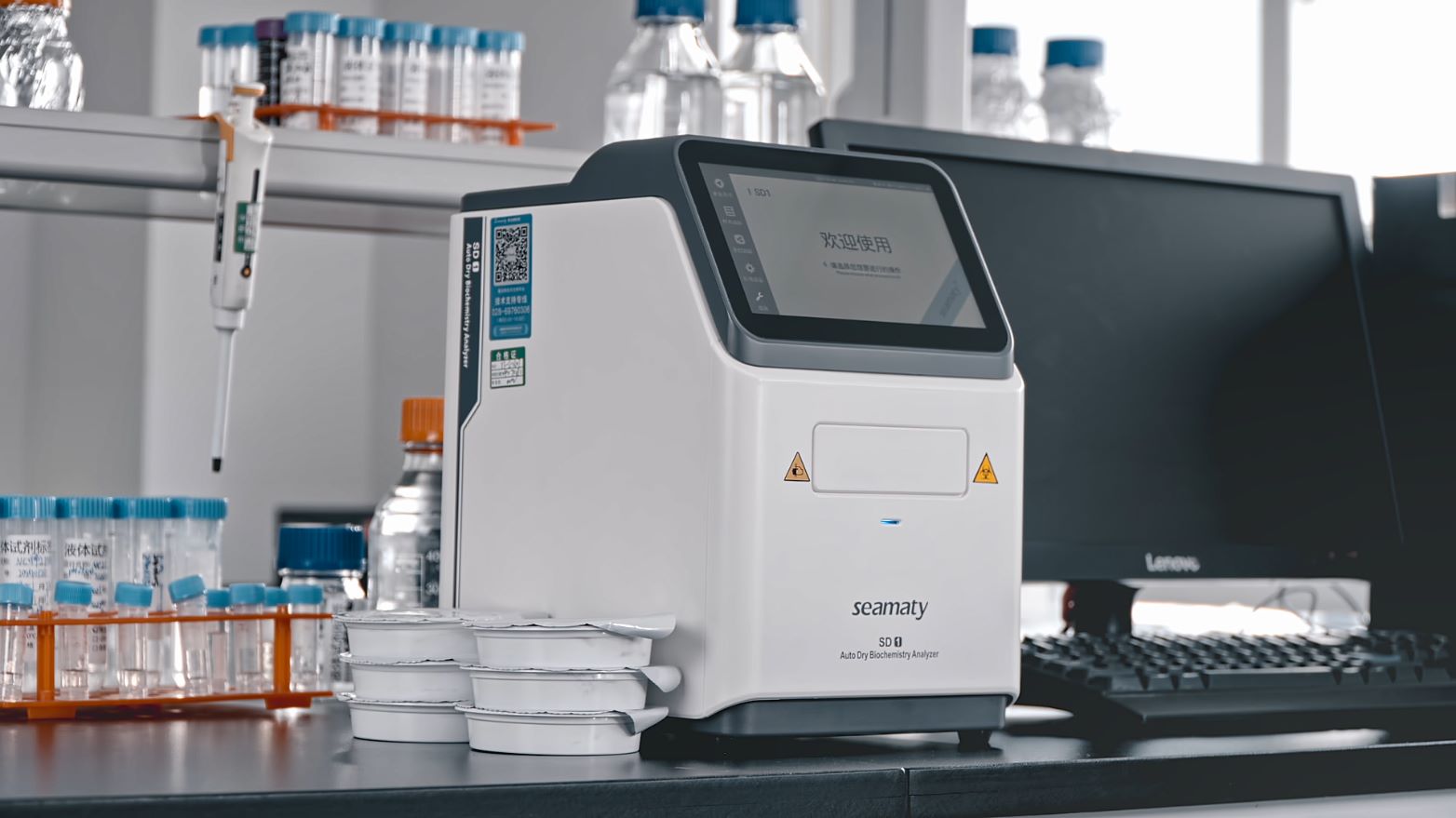
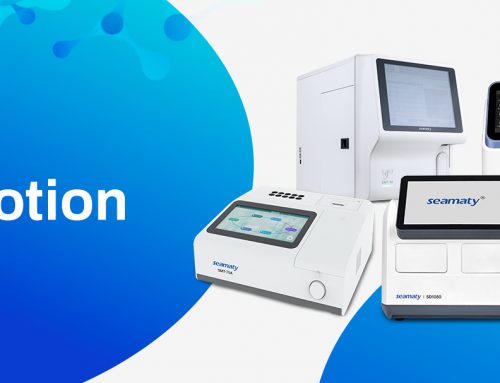
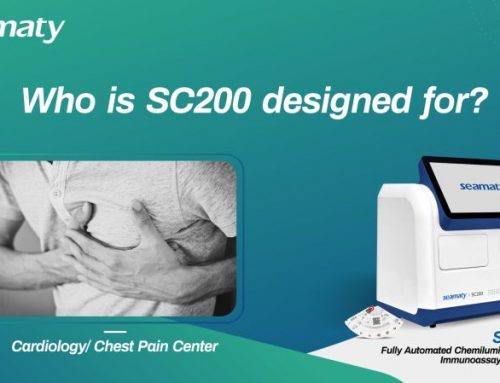
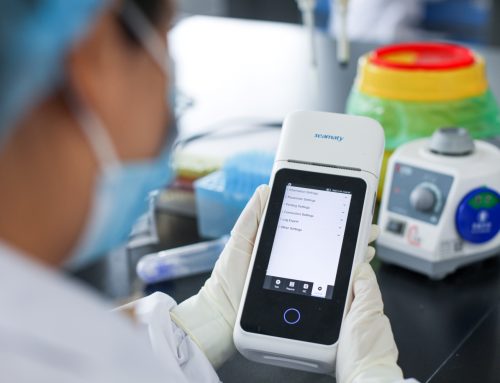
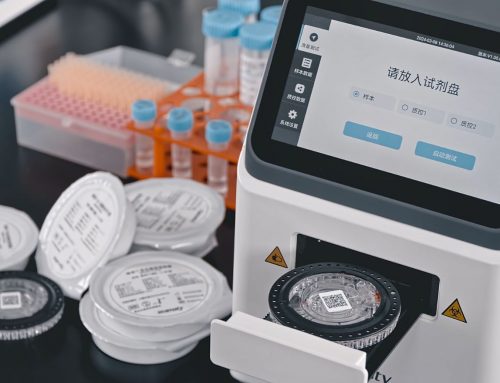
Leave A Comment